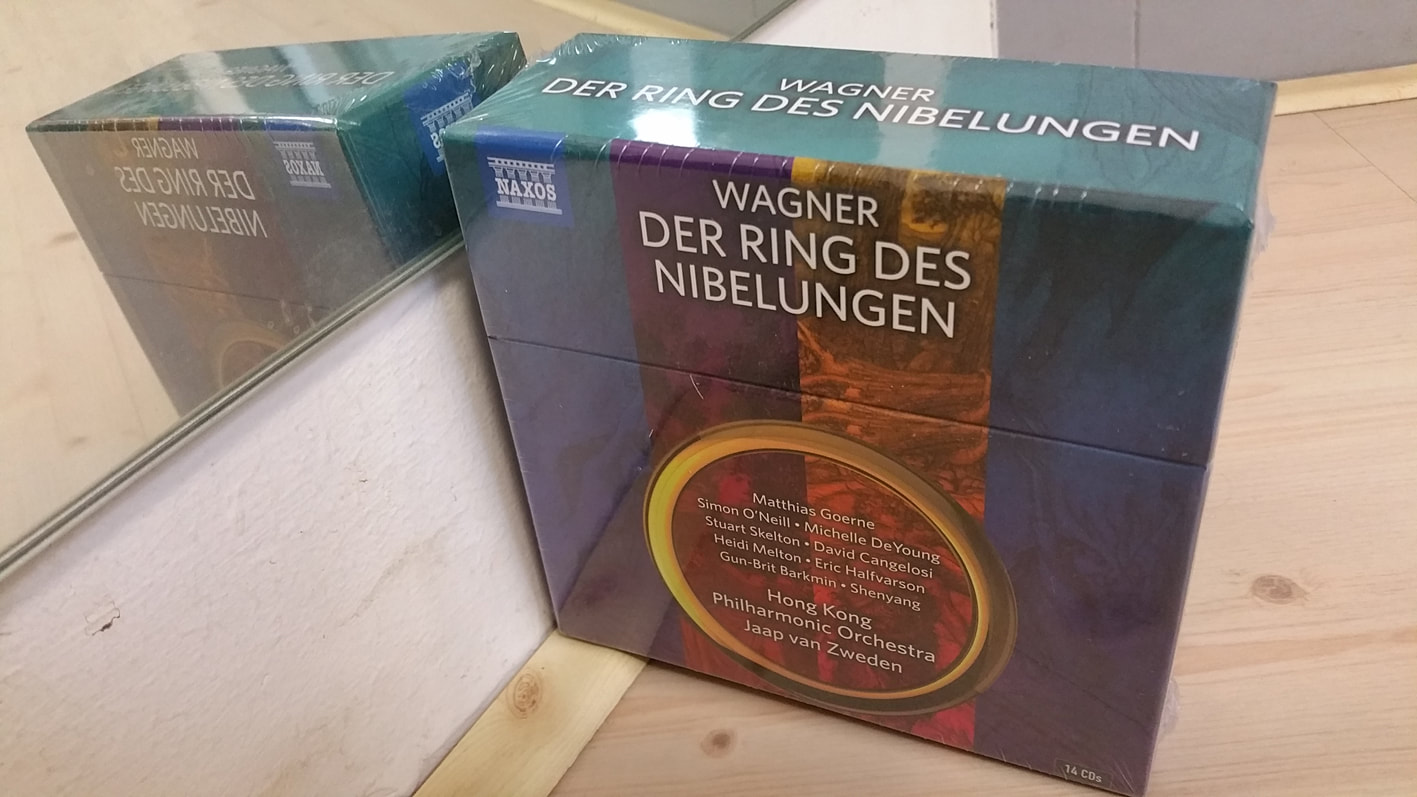|
Beyond the rationale that 20+ complete cycles (on CD, DVD and harddisk) is already more than one person possibly will and can listen to in his or her lifetime, it calls me: DER RING. The prospect of going through the whole endeavour of Wagner's Nibelungen saga with another cast, another orchestra and another conductor is hard, if not impossible, to resist for the Wagnerite that resides in me for almost two decades now. A cycle, moreover, with a conductor that has proved himself in Wagner. Who showed with beautiful and enthralling renditions of Lohengrin and Parsifal that he knows how to find the key to the Erlösungsbedürftige operas of the self-proclaimed composer of the music of the future. New, in tremendous sound, critically acclaimed, every bit a Ring of our times. The fear of missing something defeats the notion to restrain oneself, by far, and I listen to the woodbird in my head telling me to pick it up. So I add another cycle of DER RING, the one from Hong Kong with Jaap van Zweden, to my collection. Because the one Ring that rules them all is made out of many. Van Zweden’s reading is one of someone who knows that drama has to evolve, to develop. He knows that drama, and intrinsic to that: beauty, can't be summoned by cheap tricks. Van Zweden doesn’t ride the fast lane but in a good Ring it isn't of any importance how long it takes to make it to the end of Götterdämmerung. In a good performance that end will always come too soon. And a good performance this is. Van Zweden's tempi may be wide (they prevent Act 3 from Siegfried from fitting on one CD, thus cutting the road to Brünnhilde's "Heil Dir, Sonne!" in half) but he certainly doesn't choke on slowliness. In his approach Van Zweden leaves the orchestra room to breathe. Breathing, and the writer in me who wants to put into words what music does to him, means to him, repeats himself when he states that breathing is the most important thing - whether it concerns a Bruckner symphony or a Slayer song - in music. Wagner's orchestral demands for a magical world of sound are met by the Hong Kong Philharmonic with remarkable cunning and comprehension. In what is their first series of Wagner operas, they rise, under the baton of Van Zweden, to the occassion. Together with the singers they fully emerge in a musical world in which large gestures don't forget to connect with the most intimate of feelings. Feelings that lie at the core of every story. Feelings, all too human, that live in the heart of even the mightiest of Gods. In The Hong Kong Ring the vocal performances do not always reach the level of their sublime orchestral counterparts but in Matthias Goerne it has a Wotan of great beauty. The transformation from the Chief God as a relatively flat character in Das Rheingold to a God of flesh & blood in Die Walküre finds in Goerne’s interpretation a terrific depiction. In Wotan’s Farewell, Lieder Singer Goerne brings out Schubert in Wagner, extremely moving, with a serious attack of goose bumps as a result. Wagner: Der Ring des Nibelungen Matthias Goerne (Wotan), Petra Lang (Brünnhilde - Die Walküre), Heidi Melton (Sieglinde/Brünnhilde - Siegfried), Gun-Brit Barkmin (Brünnhilde - Götterdämmerung), Daniel Brenna (Siegfried - Götterdämmerung), Simon O’Neill (Siegfried - Siegfried); Hong Kong Philharmonic Orchestra, Jaap van Zweden See also: One Ring to rule them all >> - Wouter de Moor
1 Comment
Luis Diego Ramirez Guerrero
2/24/2019 01:13:15 am
May not be the greatest of the Ring´s renditions but, the intent is there.
Reply
Leave a Reply. |
TIMELINE
July 2024
|


 RSS Feed
RSS Feed